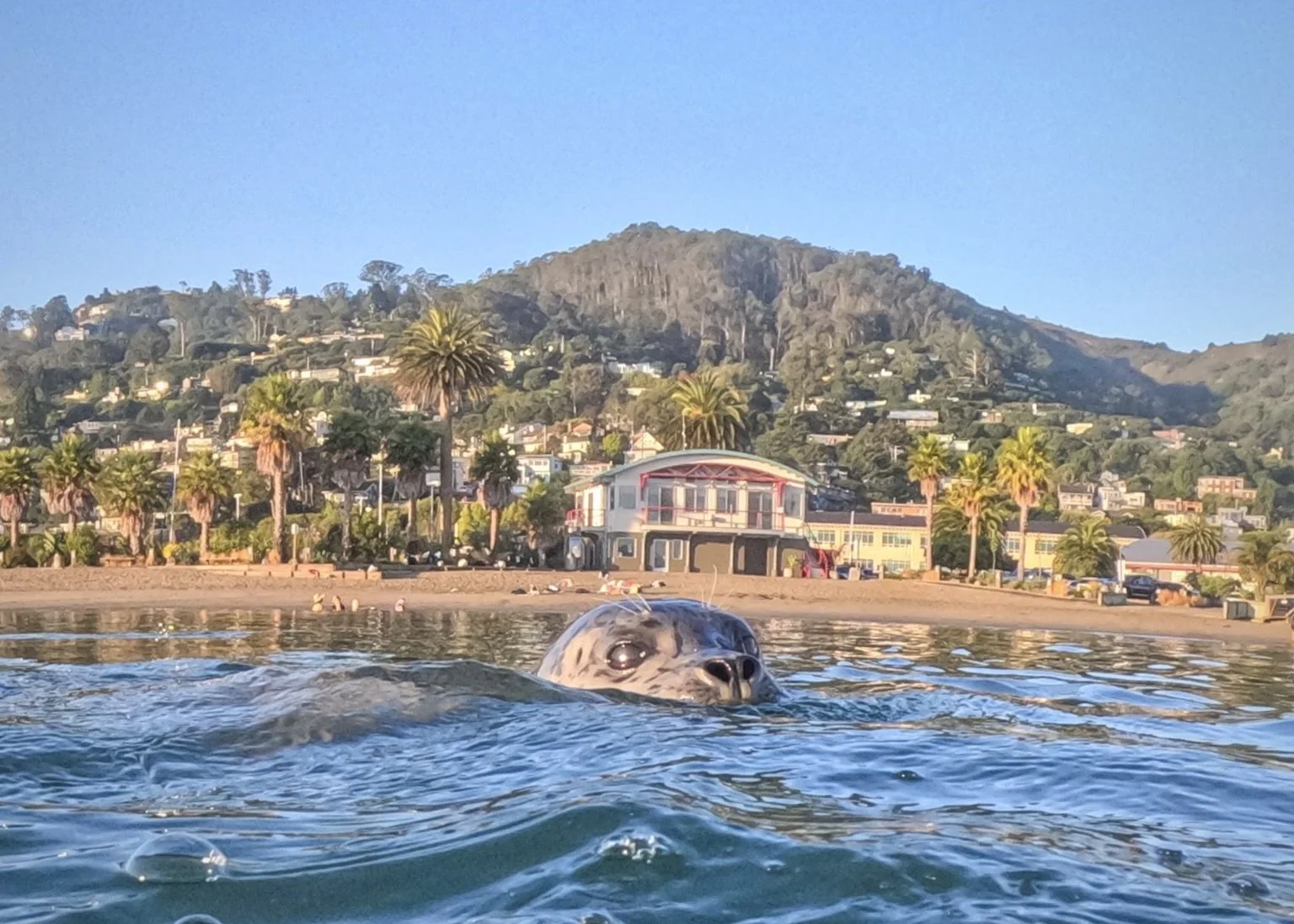Rituals of Togetherness
As I note incremental changes in the evening light and pick blackberries in my garden, tasting sunshine, transitions have been coming to mind. Summer comes to Marin in September, a harbinger of fall. In the interstices between seasons, I have turned to Victor Turner’s reflections on liminality–the state of being betwixt and between–and the possibilities that arise at the threshold of here and there. Turner speaks of rituals of transition and what they reveal about relationality. Writing of how rituals create “a moment in and out of time,” when one is displaced from the ordinary structures of life, he describes how they enable a sense of communitas, a temporary state of togetherness that arises through a shared experience.
This summer, I began a ritual I would never have considered until one morning when something unpleasant suddenly became desirable. As I watched the sunrise at a nearby harbor, drinking tea, I saw four women arrive, bundled up. They discarded their layers and waded into the cold bay. It was a windless morning. The water looked like glass. Something stirred inside me–a pull to join them as they swam towards the sun. This made no sense. I dislike cold water. Intensely. Yet, on a whim, as they returned, I remarked on their courage: “I wish I had the guts to do that.” They replied, in tandem, “You can! Join us.”
I now make my way down to the beach, each Sunday morning, bundled up, a thermos in hand. I join the women as they stream into the harbor at dawn. We gather in a circle and each one takes a turn to say her name. The facilitator for the day makes an offering: “If you are here for the first time, let us know. We can hold your hand going in.” She retrieves a piece of paper, a poem by Mary Oliver called “Why I Wake Early.” The rest of us turn towards the rising sun.
I close my eyes as I hear the words: “Hello sun in my face. Hello, you who make the morning and spread it over the fields…” I feel the breeze and smell the sea. As the last lines trail away, my body anticipates the cold. The shedding begins– coats, clothes, and shoes are cast off, stripping the inhibitions that parse us from tactility of the elements, and from each other. As we make our way towards the frigid water in thin bathing suits, bare skin, feet on sand, the sludge of the low tide between our toes, I notice that everyone draws a little closer.
Dipping at Schoonmaker Point Marina | Photo by Author
Each time, as the cold hits me, I find myself turning to someone nearby: “Could I hold your hand?” A woman whose name I do not know responds, unthinkingly, as though this gesture of meeting vulnerability with accompaniment is an ordinary, casual exchange between strangers. As we wade in, her palm becomes an anchor, her grip a point of focus, as my body acclimatizes. Slowly, my shaking dissipates. I let go of her hand, held, instead by the water. I relax, an unexpected unclenching into the cold. Buoyed in this briny bath, the seaweed swirling around me, I breathe in the ocean, the fog, the early morning sun. I fall into silence. The pelicans dive. I catch the eye of the woman I waded in with. She calls out to me: “My hand is still available.” I feel her palm in my empty hand. Again, an anchoring. I recall how the water feels colder when I dip alone. Communitas.
This Sunday, we had company. I turned away from the group and found myself locking eyes with a baby seal. Bobbing up and down, it approached me, its whiskers twitching like antennas. I stood still, unsure if I should move closer or pull away. The seal decided for me. Diving under the surface, it began an unfair game of hide and seek, appearing and disappearing around us, tapping the feet of an unsuspecting swimmer, following her as she made her way into the bay. Accompaniment comes in the strangest ways, I thought.
Baby Seal at Schoonmaker Point Marina | Photo by Annie Schweibinz
Later that afternoon, I felt cold in the summer sun. Warming my body on the beach, I reflected on what opens up between strangers in these moments of gathering in the water. I found myself wondering: why is it that we meet each other with guardedness, veiling our interiors, when there is such togetherness in vulnerability? Turner’s thoughts on communitas returned to me. I recalled how he distinguishes communitas from community: the first is liminal and transitory and the second is structured by social roles and hierarchies. Dipping reveals for me possibilities that arise in temporary gatherings outside the spheres of ordinary life. Something opens up in the liminality of these fleeting moments in the waters of the bay that provides a glimpse of what togetherness can mean when we make ourselves available to expanding our thresholds in the company of each other.


